
The whims and motivations of climbers really are another world to the person in the street. Understanding them is crossing a threshold; it requires a certain suspension of disbelief to start to see the world of risk, adventure, suffering and more in a different light.

Those thresholds exist within climbing too. One of them is understanding the obsessive new-router. I think we can all appreciate the buzz of discovering something no-one else has done. We could probably imagine cleaning something, maybe even drilling some bolts, although I bet few of us have actually done it. Even fewer can really get inside the mindset of the truly obsessed. That person who will plough time and money that could be used on trips and climbing into finding, cleaning and climbing new routes.
Pete Oxley is one of these people, and what fascinates me about him, and others who were new routing at the same time, is the sheer volume of routes he was putting up - more than 800 new routes, many in Dorset, but also in Avon and Cheddar, the Peak District and south and west Wales. His output is probably only surpassed by Gary Gibson, Martin Crocker and Pat Littlejohn.
Pete's opened up routes of all grades, but was responsible for some of the hardest lines around, including Laughing Arthur, E8 6b, and Infinite Gravity, 8a+, both taking on the impressive overhangs at Blacker's Hole in Swanage.
Pete was also part of a new wave of climbing in the 1980s, with new ideas and a pushback against traditional ethics. That tradition is particularly strong in Britain - we don't like bolts. Or, rather, we didn't like them.
When Pete started his new routing activities the direction of climbing was changing. He had a reasonably traditional induction in some respects, spending years trad climbing before really becoming obsessed with bolting lines, but also had a rather insular way of creating his own routes and problems, coming up with training methods and opening up unusual venues, like railway bridges.
At the time, continental ideas about sport climbing and bolting were creeping into the UK. There was still an abundance of rock to be climbed, if you knew where to look, and there were venues where, today, it seems obvious that you'd bolt them. But back then that wasn't the case - someone needed to be the first, and they had to have a thick skin to weather the storm of criticism that would follow.
Pete's routes emerged, through a few mistakes and accidents along the way, as one of the biggest legacies of the era. If you've climbed on Portland or Swanage, you've almost certainly done one of his routes, and you've probably clipped his home-made bolts.
In order to achieve this legacy, Pete lived on the dole like many UK climbers in the 1980s. He was probably the only full-time climber in south-west England at the time. He invested his time in training, finding and cleaning new routes, testing out new ideas for bolts and enjoying the creativity of the sport.
His unusual drive - spending many days alone on the sea cliffs bolting and cleaning, in all conditions - has created a legacy for the climbing community. In a second monumental effort, Pete started working with Rockfax to create the main guidebook for the area. The first edition appeared in 1994 and Pete has contributed to all the subsequent editions which now number 5 with the latest just being published in July 2021.
Dorset 2021
The Dorset Rockfax covers the superb sport and trad climbing in Portland, Swanage and Lulworth on the Dorset coast. This amazing area is one of the most popular sport climbing areas in the country with a huge number of routes across the grades and great appeal to climbers of all abilities. Thousands of brilliant routes and a relatively friendly climate mean that the area is always busy with...
More infoIn this episode I talked to Pete about the source of this motivation, the development of Dorset as a sport climbing destination, and why he was so inspired by the late John Peel - a parallel story of a new creative independence in climbing, matched by the growing indie music scene.
Pete would like to thank his partner of 29 years, Jan Rostrom, his parents and the Portland Pipers (they know who they are) for their support over the years.
- IN FOCUS: White Gold - A Cultural History of Climbing Chalk 27 Jan, 2022
- PODCAST: Factor Two - S3 Ep.10: Hateja - Louise Thomas and Glenda Huxter 24 Jun, 2021
- PODCAST: Factor Two - S3 Ep.9: Finding the Balance - Katherine Schirrmacher 23 Mar, 2021
- CRAG NOTES: State of Independence 8 Mar, 2021
- PODCAST: Factor Two - S3 Ep.8: Hard Grit 28 Oct, 2020
- PODCAST: Factor Two - S3 Ep.7: A Play for Voices 16 Sep, 2020
- PODCAST: Factor Two - S3 Ep.6: Brave New World 6 Aug, 2020
- PODCAST: Factor Two - S3 Ep.5: Deep Play 7 Jul, 2020
- PODCAST: Factor Two - S3 Ep.4: Walking the Magic Line 27 May, 2020
- PODCAST: Factor Two - S3 Ep.2 Part 2: The Moment You Doubt - Ben Bransby 14 Apr, 2020




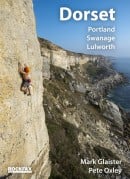

















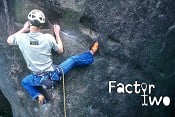

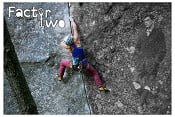


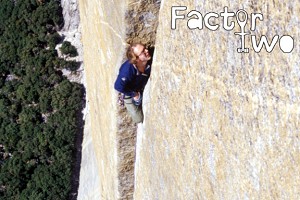
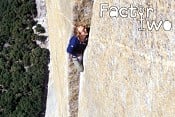




Comments
Good to see this and am so looking forward to listening to it. Pete's lonely orgy of labour transformed Dorset climbing from a sleepy backwater to what it is today. We will always be in his debt.
Mick
I look forward to listening to this - I bet it will be up to Wil's normal impressively high standards. Just one little thing about the intro text; when prolific new routers are mentioned among us in the more southern parts of the British Isles, the Scots seemed to get forgotten. I suspect that Andy Nisbet's and quite possibly Gary Latter's names should be up there with Gibson, Crocker, Littlejohn and Oxley.
This is of course a good point. I am repeating the previous emphasis from "Who's Who in British Climbing" here.
Massive thanks for this, as someone who’s climbed in Portland a whole bunch I’ve always viewed Pete as a legend!
sure that Andy had >1000 new routes although I don't know what percentage were winter or summer